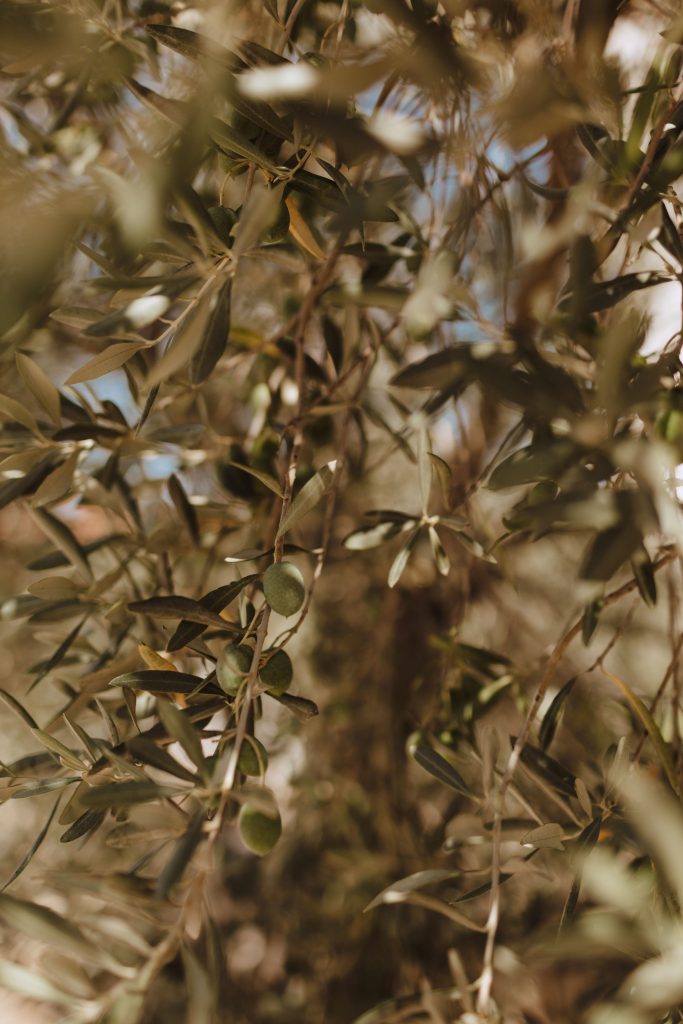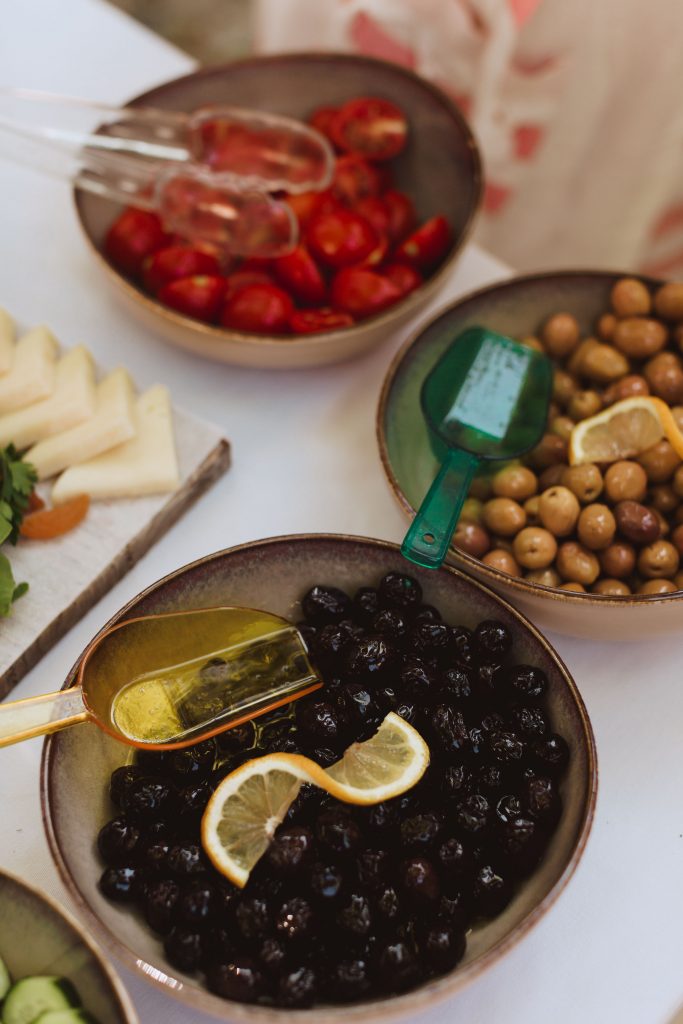“Zeytinyağı gibi üste çıkma!” or “Don’t stick out like olive oil!”
This time last year, my husband and I were sipping olive oil at a tasting course at the International Gastronomy Tourism Congress in Izmir, Turkey. In a process much like wine tasting, our host, Müge Nebioğlu guided us through the search for texture, flavors, and olfactory differences between more than ten different olive oils from the Aegean region of Turkey. We were amazed by the variety of flavors present in the oils – from grassy to spicy, they were wonderfully complex. As we were tasting our way through the oils, we were also reminded of the history of the olive tree in the Aegean and Mediterranean region. While I have known olive trees and olive oil are important to Turkish culture, our tasting course opened my eyes to the political, social, and economic significance of olive trees throughout the history of Turkey.

From references of olives in The Iliad, set in Troy of modern-day Turkey, to a claim on the first olive oil production in Urla, Southern Turkey, this liquid gold is the heartbeat of the nation. There is even a whole subcategory of Turkish food cooked in olive oil called zeytinyağlı yemek which I highly recommend consuming while listening to Türk sanat müziği and sipping on rakı, a star anise-flavored grape liquor.
There are nearly ninety different varieties of olives produced in Turkey. They are generally produced in the southwestern coast of the country where the trees grow with ease because of the perfect climate benefiting land adjacent to the Aegean and Mediterranean Sea. Harvest season starts in November and lasts until March; people collect olives by either shaking the tree or gathering them off the ground. The use of olive oil is not limited to gastronomical consumption: Turks have also historically used the oil for medicinal remedies, cleansing, and sacrificial practices.
But the olive tree itself also carries the history of the villages and often outlives generations of families. Olive trees are perennial evergreen trees that can live up to 2000 years. For this reason, the olive tree orchards currently bearing fruit are the result of the foresight and dedicated work of prior generations. My husband’s village outside of Ephesus is wholly dedicated to the olive – the village name itself is derived from the historic fruit. For over 100 years our family has produced small-batch olives and olive oil. Thirty years ago, when my father-in-law inherited his apportioned plot of land, it was divided up by the count of the olive trees rather than the size of the land because ultimately the tree is the source of value to the inheritance.
In fact, the land and olive orchards that my father-in-law inherited hold a specific historical weight, especially in relation to the fall of the Ottoman Empire in 1923. Prior to that time, many Muslim Turks were living in Greece while many Christian Greeks were living in Turkey. But as the rule of the Ottoman empire collapsed, the Greek and Turkish governments decided to have people return to their country of nationality and faith origin. This population exchange was a painful period in the history of Greece and Turkey. It ultimately resulted in increased political tensions and religious hostility, with many displaced communities and an overall loss of productivity. Despite these difficulties, the olive tree continues to be a symbol of peace and cooperation between Greece and Turkey, particularly in the Aegean region. The olive trees in Turkey planted by the Greeks before the population exchange are still harvested and cared for by the Turks, like my husbands family, who came from Greece. Historically, olive branches symbolize peace and in the Southwest region of Turkey the olive trees symbolize the combined hard work and shared heritage of the Aegean Greeks and Turks.
Years after the population exchange, olive trees and olive oil from the Aegean and Mediterrean region continue to lead Turkey into notoriety. Despite the long known history of olive oil in Turkey, the international audience does not directly connect Turkey with established olive oil culture. This has left the Turkish olive market in a position where it is playing catch up. People often associate high quality olive oil with Spain, Greece, and especially Italy. Because of the success of Italian food fame and marketing, many companies have attempted to leverage this branding power even if the olive oil is not “100% made in Italy.” In fact, much of the olive oils sold in Europe and America are adulterated and inauthentic to their labels. But even with this headwind, the Turkish brand marketing is making waves and is now a sought after provenance in the olive oil market.

Turkey is actually one of the top five producers of olive oil in the world! According to the NYIOOC World Olive Oil Competition, the world’s most prestigious olive oil contest, “while Turkish olive oil production slightly dipped in the 2018/19 harvest season, yields continue to trend upwards in the world’s fifth largest producing country.” Recognition of Turkish olive oil has surged and Turkish companies like Nutra Sol, Hermus, Nova Vera, Laleli and Nermin Hanım Zeytinliği are receiving international awards. While you are out shopping for next bottle of olive oil, be sure to research the company and origin. Don’t shy away from indulging in a beautiful Turkish olive oil.
To find out more practical tips on purchasing olive oil, we went to my husband’s village and talked with my father-in-law about his craft. While we only sell olive oil at the local farmer’s market, my father-in-law knows a thing or two about how to find a good quality oil. He had a few tips and tricks for you as you purchase and consume olives and olive oil. Here they are!
Make sure the oil is stored in a dark colored, glass bottle. The dark glass protects the olive oil from direct sunlight which can degrade and age the olive oil. Glass seals out air, and will not release chemicals (such as those sometimes present in plastics) into the oil.
Cooking with olive oil at high temperatures often changes the complex flavors of the oil. Be sure to know whether it is an olive oil to be used to finish a dish or an olive oil for cooking.
Extra-Virgin is the purest class of olive oil which indicates that the oil has not been treated with heat, has no added chemicals and is unrefined. This label is the surest indicator of a high-quality olive oil.
Images courtesy of the author.
This article was originally published on January 2, 2020, by Jocette Lee.










